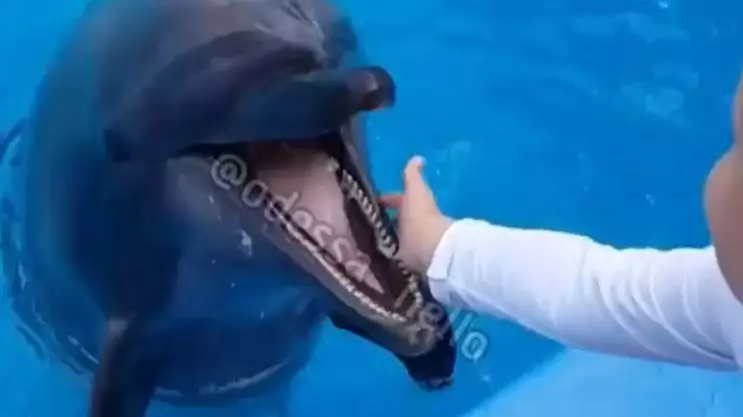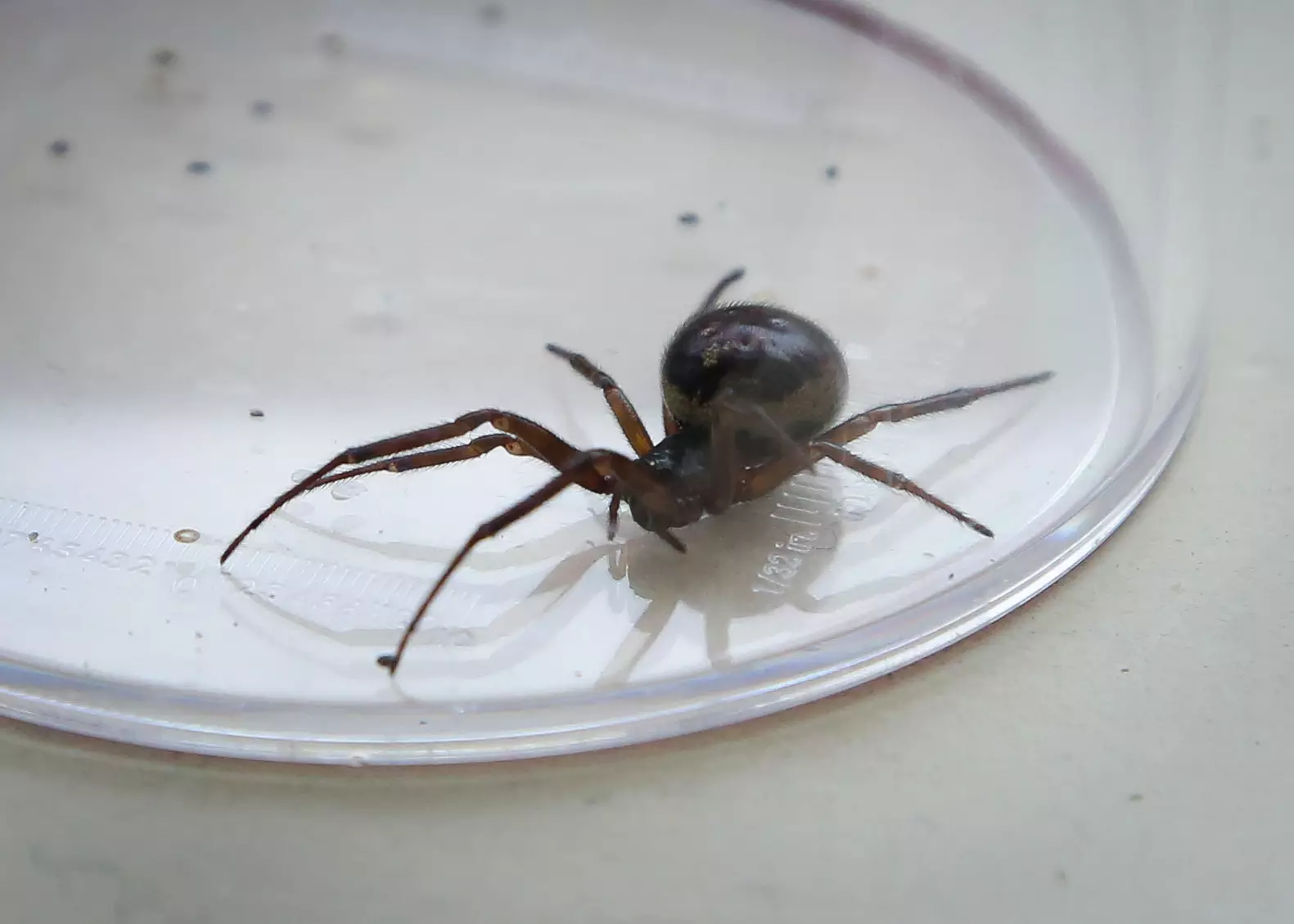
A young boy was left with scratches to his hand after a dolphin leapt out of the water and bit him.
Shocking footage has been shared on social media showing the moment a six-year-old put his hand over the railings of the dolphin enclosure at the Black Sea Resort in Ukraine and was attacked.
Advert
In the clip, which was posted to Instagram, the boy, wearing a white top, reaches over and dangles his hand in the air above the water.
Then, just seconds later, a dolphin pokes its head out and leaps at the boy, biting his hand before eventually letting him go.
According to reports, the dolphin's trainer said it did not intend to attack the boy, but believed he had food.
Officials at the Nemo Dolphinarium also reportedly said visitors were warned about the dangers of putting their hands near the water.


Olena Komogorova, the Dolphinarium's head trainer, said: "A hand, stretched above the water, means that somebody offers a treat."
Advert
It's understood that the centre has committed to strengthening its security measures as a result of the incident.
LADbible has contacted Nemo Dolphinarium for a comment.
Now, while it's unlikely that you'll find yourself in the same position as this young lad, that doesn't mean you should be complacent.
The number of False Widow spiders in the UK and Ireland are on the rise, according to a new study from the University of Ireland Galway - which also confirmed their bite can prove so severe that it may lead to hospitalisation.
Advert
While the Noble False Widow (Steatoda Nobilis) is similar in appearance to the notoriously deadly black widow spiders, they are nowhere near as harmful.

However, new research - which was published in medical journal Clinical Toxicology earlier this week - reveals the species may be more problematic than we realised, with a press release from the University of Ireland Galway confirming they spiders do have 'public health implications' after all.
According to the university, the Noble False Widow originates from Madeira and the Canary Islands, and was first been documented in Britain more than 140 years ago.
Advert
But now the species has the potential to become 'one of the world's most invasive species of spider', having 'suddenly increased in numbers, significantly expanding its range and density' in recent decades.
A press release says: "With the increase in False Widow spiders around homes, bites are becoming more prevalent, and scientists are now beginning to realise the full medical importance of these spiders."
Featured Image Credit: Instagram/@odessa_hello